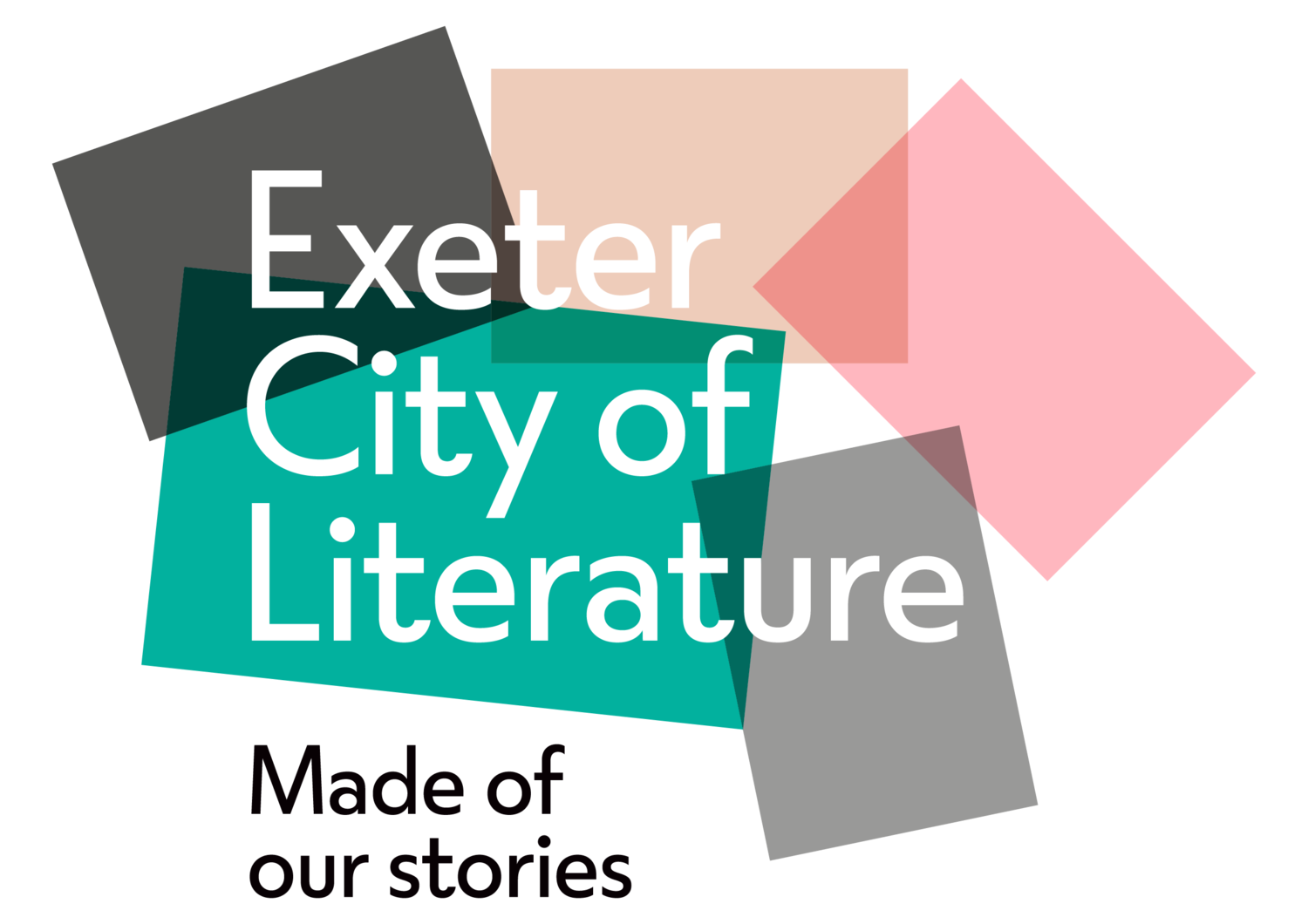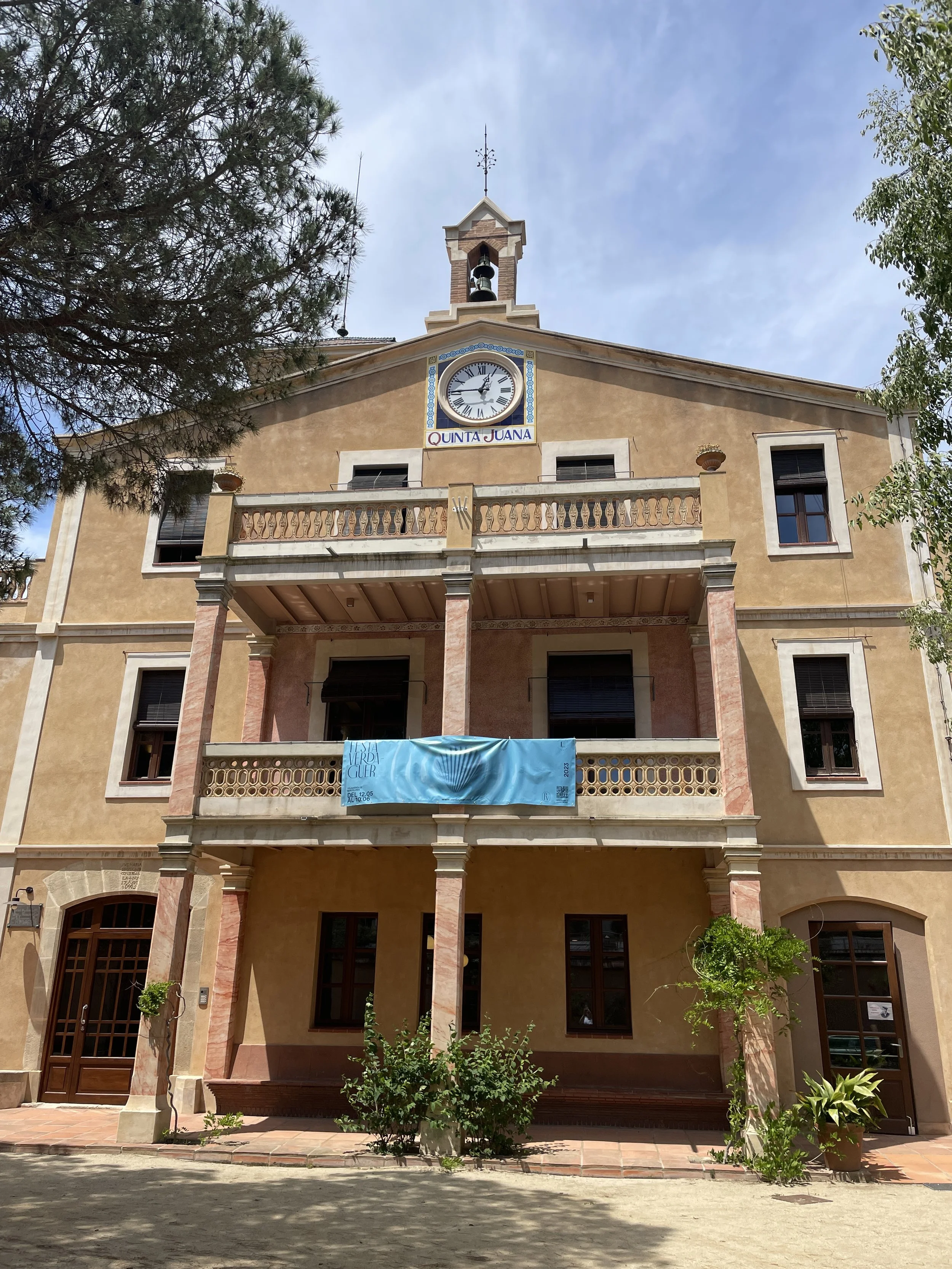On a Literary Fact-Finding Mission in Barcelona
“A l'atzar agraeixo tres dons: haver nascut dona,
de classe baixa i nació oprimida.
I el tèrbol atzur de ser tres voltes rebel.”
Maria-Mercè Marçal
[I am grateful to fate for three gifts: to have been born a woman,
from the working class and from an oppressed nation.
And the clouded azure of being a rebel three times over]
Barcelona became a UNESCO City of Literature in 2015, which is no surprise for a city whose most famous celebration is Festa de Sant Jordi, a day of books and roses. Barcelona is home to over 40 libraries, 300 bookshops, weekly book markets, and a stunning Literature House just outside the city that hosts writers from UNESCO Cities of Literature around the world, including Exeter!
Even though Barcelona is over 12 times the size of Exeter (it has a population of 1.6 million!), it has many of the components that Exeter has in terms of being a literary city, and some we’d like to have (wait til you see Villa Joana!). So I (Anna) was invited to go on a fact-finding mission to see how this famous city helps to make reading fun and accessible to its residents and visitors.
Like England, Barcelona faced a period of austerity from 2009-2018. Since then, the city council has been spending more on culture, including the £10 million Gabriel Garcia Marquez Library in the working-class neighbourhood of Sant Martí de Provençals, which opened in 2022.
The library is in a 4,000 sq metre timber-framed building that received a gold LEED certificate, the highest rating for sustainability. It specialises in Latin American literature and has a theatre and playroom space for children with learning disabilities, a room to record radio shows and podcasts, study spaces surrounded by white gauze curtains to encourage quiet, and a beautiful seating area overlooking the trees. Did I almost miss a meeting because I was reading in the hammock? I can neither confirm nor deny.
Exeter’s first ever Book Market took place in 2021, and we now have one every year filled with Devon’s independent bookshops, local food & drink vendors, and free bookish activities. Barcelona goes hard on book markets and not only does a huge one every weekend but now has an arts book fair once a year as well. Booksonbooksonbooks.
Mercat de Sant Antoni features rows upon rows of comic books, non-fiction books, used books, records, and much more. It was bustling the entire time I was there, and I even spotted a few books by Devon’s very own Agatha Christie!
ArtsLibris is an international artist’s book fair that “creates new meeting points between art and society through the book-object.” It features seminars, debates, photographers, student artists, publishers, bookshops, and booksellers. The 4-day fair provides space for meeting, reflection, and collaboration in a space surrounded by beautiful books, art, and books-as-art. MakeTank in Exeter launched something similar this year with their Make Your Own Book Festival–long may it continue!
Exeter City of Literature sent an author on a UNESCO City of Literature residency for the first time this year. Lucy Holland, the bestselling author of Sistersong, went to Villa Joana for a three-week writing residency alongside authors from Prague and Heidelberg. You can read more about Lucy’s experience here.
Villa Joana was the final home of the beloved Catalan writer Jacint Verdaguer. Today, Villa Joana acts both as a memorial and as a house of literature: a space that emphasises the value of the literary word through the figure of Verdaguer. It has interactive exhibits on the written word, meeting rooms and study spaces, and accommodation for visiting writers. All set in the beautiful hills just outside of the city.
My favourite parts of the museum were the spinning wheel that links a country to text from that country about the world’s origins and the old phones where you can listen to stories in various languages. Villa Joana embodies many of the senses when it comes to literature, not just the intellectual aspect, which makes it a vivid and experiential space.
Barcelona embraces what it is to be a literary city, a city not just for avid readers and writers but one that embeds literature and storytelling into so many facets of its existence through public policy, city planning, job creation, and lifestyle. We’d love to hear from YOU about what you want from Exeter as a City of Literature. Get in touch with us with your thoughts!
June 2023









